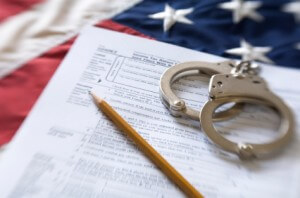ULC Court Case: Opinion Of The California State Board Of Equalization
August 22nd, 2012
Court Case Background
Robert V. Fike appealed a decision made against him by the IRS to charge him personal income tax and penalties. He was charged $490.01 for the year 1983 and $449.22 for the year 1984. Fike’s argument was that he should have been entitled to charitable deductions for those years due to the fact that he donated money to the original Universal Life Church of Modesto, California. Specific proceedings from this court case are summarized below:
Case Proceedings

This Opinion found that the original Universal Life Church of Modesto, CA was not a charitable, exclusively religious organization and donations to it did not qualify someone for tax exemptions.
The Franchise Tax Board (FTB) requested verification of the donations to the ULC, as they were aware of the fact that some people were using involvement with or donations to the Universal Life Church as a scheme to avoid taxes at the time. While Fike was able to show copies of the two cashier’s checks used to make the donations neither were endorsed by the ULC. Because of this, the FTB assumed the checks were made out to a charter chapter of the ULC, which is organized and operated as a tax avoidance scheme and to which contributions have, for that reason, been deemed nondeductible by federal courts.
Because the Universal Life Church legal team was able to establish the Church as a religious organization according to law, it received tax-exempt status status on April 13, 1976. Several church activities raised doubts about whether it operated solely for religious purposes or not. These doubts included the ordination of anyone who wanted to become a minister as well as the circulating of a newsletter that detailed how ordained ministers of the church could take advantage of tax benefits. The ULC also participated in a questionable practice where it would deposit checks sent to them by their ministers and then distribute them according to their ministers’ wishes. The church did not make sure that the disbursed funds went towards expenditures, which would qualify ministers for tax returns. Instead, ministers took deductions from their monthly donations to the church and in return the church would pay the monthly expenses of the ministers.
Rulings And Outcomes
The FTB ruled that Fike’s donations did not go to a qualified charitable organization, nor could he prove that the church had endorsed the checks. Fike then appealed, and the opinion of the California State Board of Equalization agreed with the FTB’s ruling. According to the IRS, any contribution made to an organization or group can only be deductible if the organization or group operates exclusively for religious purposes. In order for the organization or group to be confirmed as such, it must meet the IRS’s requirements.
Because the charter chapters of the Universal Life Church had been determined to not have tax-exempt status and due to the fact that the tax-exempt status of the church was revoked as of 1984, a ruling that was up-held in court cases such as Universal Life Church, Inc. v. United States, Fike’s appeal was denied. He was unable to argue why the penalties imposed on him by the IRS should not apply. The previous ruling was sustained, and Fike was ordered to pay the original amounts charged for the years of 1983 and 1984.
Outcome: donations to the Universal Life Church of Modesto, CA were not qualified as donations to a charitable organization, and thus did not qualify US citizens for tax deductions



Greetings,
I was sent an IRS Ministerial Waiver from the Department of Treasury. The letter stated that ” I must send a copy of the exemption letter se sent showing your organization is described in Sections 501(c)(3) and 170(b)(1)(A)(i) of the Internal Revenue Code (IRC). Or the church organization can send Form 1023, which looks like it is a federal exemption letter. How do I go about obtaining what they are requesting?
Sincerely,
Helen
Because I’m not a tax attorney I can’t speak to your personal situation. I can say in general that the ULC is unable to assist you in receiving tax benefits or exemptions, or process these on your behalf. I would encourage you to reach out to a tax professional in your area to discuss further